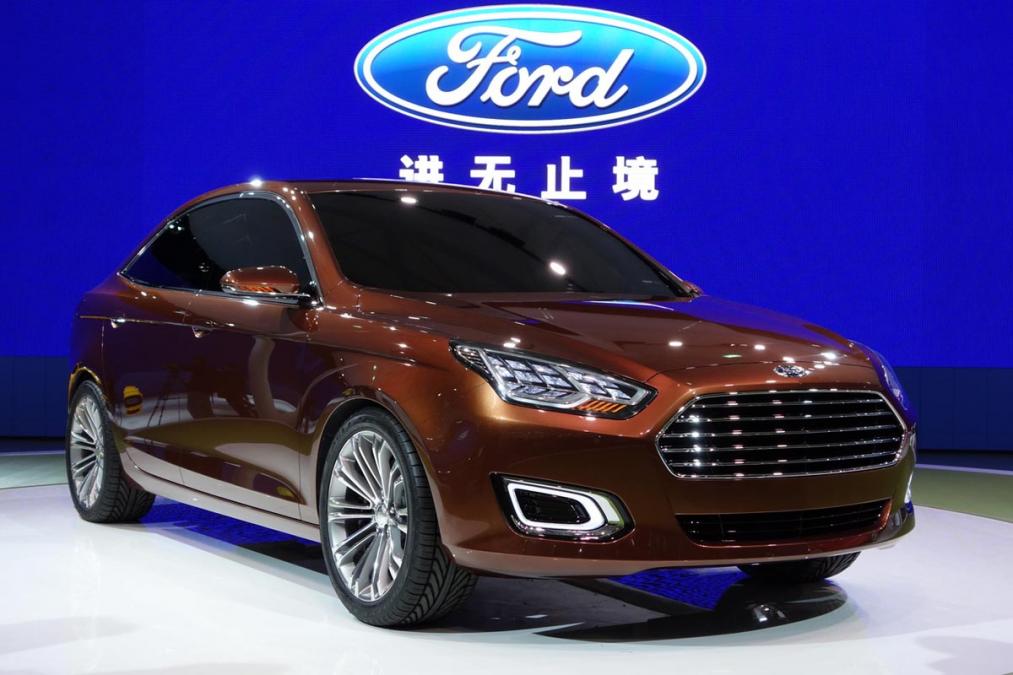Ford Plans More Smart Vehicles in China Growth Plan
In an outline of its next phase of its China expansion strategy, Ford indicated that it is focused on SUVs, electric and connected vehicles, a streamlined business structure and closer connections to Chinese customers.
Executive Chairman Bill Ford and CEO Jim Hackett shared the vision while in China to meet with employees, customers, dealers and government officials.
“China is not only the largest car market in the world, it’s also at the heart of electric vehicle and SUV growth and the mobility movement,” said Bill Ford. “The progress we have achieved in China is just the start. We now have a chance to expand our presence in China and deliver even more for customers, our partners and society.”
Added Hackett: “Ford’s aspiration is to become the world’s most trusted mobility company, designing smart vehicles for a smart world. We are very excited to see this vision come to life in China.”
To enable future growth in China, Ford will contain structural cost in the region throughout 2018, aiming to generate greater efficiencies, become more operationally fit and deliver additional value to shareholders.
Even as the team works to streamline, Ford plans to grow its China revenue by 50 percent by 2025 versus 2017 and is focusing its business expansion on three areas: even more smart, connected vehicles; closer connections to Chinese customers, and a streamlined business structure.
Even More Smart, Connected Vehicles: The company plans to offer more than 50 new Ford and Lincoln vehicles in China by 2025.
The expanded product portfolio will reflect an even stronger emphasis on SUVs – with eight all-new utilities, along with more electric vehicles.
The company will launch at least 15 new electrified vehicles from Ford and Lincoln. And the new Zotye-Ford joint venture will deliver a separate range of affordable all-electric under a new brand, pending regulatory approvals.
“From luxury Lincolns, to Ford cars and SUVs, to an all-new electric vehicle brand, we will meet the growing desire and need in China for great new energy vehicles,” said Jason Luo, chairman and CEO, Ford China. “Each of them will be safe, efficient, fun to drive and backed by an ecosystem that makes charging, sharing and servicing easy.”
Plus, by the end of 2019, 100 percent of new Ford and Lincoln-badged vehicles in China will be connected through either embedded modems or plug-in devices. Company leaders also are working on broader infrastructure opportunities to improve future mobility experiences.
Ford is one of the founding members of the Board of Baidu’s Project Apollo, building on the agreement signed earlier this year. The Apollo Open Platform accelerates the development, testing and deployment of autonomous vehicles. Ford’s participation supports the company’s robotics and artificial intelligence research efforts and provides an opportunity to contribute to a platform that will be key to developing autonomous vehicles in China.
“We are responding to the rapid pace of change by delivering increased connectivity and working to improve and simplify mobility for everyone,” Hackett said. “This builds on our commitment to deliver smart vehicles for a smart world, helping people around the world move more safely, confidently and freely.”
Closer connections to Chinese customers: In 2019, the company starts producing five additional Ford and Lincoln models in China for Chinese customers, including a new Lincoln premium SUV, and the company’s first global fully electric small SUV.
Producing vehicles locally speeds time to market, while providing greater opportunities to fully leverage the local supply base. It also allows Ford to further tailor vehicles to more closely meet the needs of Chinese customers.
“Some of our most advanced manufacturing and innovation facilities are here in China,” said Peter Fleet, group vice president and president, Ford Asia Pacific. “Producing more vehicles for China locally allows us to improve the benefits for our customers, our partners and our bottom line.”
Ford last month opened the Nanjing Test Center, which furthers product development capability and innovation in China. The test center – which includes close to 80 different types of real road surface conditions, a three-kilometer test track and a sophisticated emissions testing facility, will allow Ford to speed development of new products, services and technologies to meet the unique driving requirements of Chinese customers.
The company also is committed to improving the ownership experience for customers with the launch of Quick Lane, its global fast, high-quality service provider.
The first two outlets open in Nanjing and Chongqing this month, offering routine vehicle maintenance such as oil and filter changes, light repair services including brake repair and tire replacements on all vehicle makes and models. Ford plans to open 100 new outlets next year.
Streamlined Business: Ford is strengthening ties with its joint venture partners Changan and Jiangling in 2018, establishing one distribution services division responsible for the marketing, sales and services associated with all Ford vehicles sold in China.
The new distribution services division will seek to offer a simplified, improved and consistent customer experience for all Ford customers in China.
Lincoln, which has become the fastest-growing luxury brand in China, remains a stand-alone consumer-facing brand and maintains its separate dealer network to offer the brand’s unique “Lincoln Way” one-size-fits-one customer experience.
“Now is the time to deepen the partnerships we have with Changan and Jiangling Group and present one Ford brand in China,” Fleet said. “The new distribution services division will enable us to offer an enhanced experience for our customers and more closely connect with our dealers and the community.
Category: General Update, News, Vehicles











